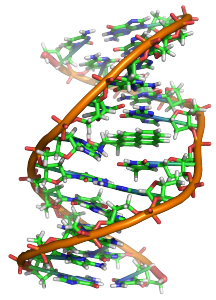- Calls to this hotline are currently being directed to Within Health, Fay or Eating Disorder Solutions
- Representatives are standing by 24/7 to help answer your questions
- All calls are confidential and HIPAA compliant
- There is no obligation or cost to call
- Eating Disorder Hope does not receive any commissions or fees dependent upon which provider you select
- Additional treatment providers are located on our directory or samhsa.gov
Urgently Needed Innovation in Treatment of Eating Disorders – Part II

Despite the increasing number of people diagnosed with eating disorders, eating disorders remain widely misunderstood amongst researchers, treatment professionals, and society [1]. One of the largest questions that remains unanswered relates to the cause of eating disorder.
While it is unknown what exactly causes eating disorders, there are hypotheses. Research shows that the cause of an eating disorder may be different depending on the type of eating disorder [1]. For example, the cause of Anorexia may be different than what leads to Pica.
Research and literature about eating disorders have discussed whether these disorders stem from environmental, biological, or psychological factors [1]. Here are some possible causes for eating disorders:
Environmental Causes for Eating Disorder
According to the National Eating Disorders Association, social factors can play a role in developing an eating disorder [2]. The biggest environmental factor linked with eating disorders is the societal pressure to be thin [2].
This pressure to be thin is one possible cause of eating disorders [2]. The drive to be thin has led to increased rates of dieting [2], which can negatively impact self-esteem. This is important because low self-esteem is common among people with eating disorders [2].
Other environmental factors that increase the chances of struggling with disordered eating include exposure to trauma or being raised by parents who have disordered eating [1]. Trauma is common in people with eating disorders [2].
Biological
 Research shows that biological factors are correlated with eating disorders [1]. Similar to other mental illnesses, someone may be predisposed to disordered eating. This means that their genetics make them more susceptible.
Research shows that biological factors are correlated with eating disorders [1]. Similar to other mental illnesses, someone may be predisposed to disordered eating. This means that their genetics make them more susceptible.
Another biological factor is the difference in prevalence depending on sex. Females are diagnosed with eating disorders significantly more often than males [1]. Other biological factors show that certain medical conditions increase the likelihood of developing an eating disorder [1]. For example, people with metabolic conditions are more at risk.
Psychological
Genetics may also influence someone’s personality traits. This is important because some psychological characteristics are common in people with disordered eating [1]. For example, perfectionism, body image insecurity, and difficulty expressing emotions [1].
Other psychological factors may include co-occurring mental health conditions, such as anxiety or depression [2]. While it can be argued that disordered eating can increase someone’s anxiety or depression, it is also fair to consider that an eating disorder may be an attempt to cope with these types of mental health challenges.
Environmental, biological, and psychological factors all may play a role in developing an eating disorder. Researchers and treatment professionals need to have a clearer understanding of what can lead to disordered eating. Understanding the cause can help professionals better understand how to treat and prevent these conditions.
Resources:
[1] Treasure, J., Antunes Duarte, T., & Schmidt, U. (2020) Eating disorders, 395, 899-911. [2] National Eating Disorder Association. (2018). Statistics and research on eating disorders. Learn. https://www.nationaleatingdisorders.org/statistics-research-eating-disordersAbout the Author:
 Samantha Bothwell, LMFT, is a licensed Marriage and Family Therapist, writer, explorer, and lipstick aficionado. She became a therapist after doing her own healing work so she could become whole after spending many years living with her mind and body disconnected. She has focused her clinical work to support the healing process of survivors of sexual violence and eating disorders. She is passionate about guiding people in their return to their truest Self so they can live their most authentic, peaceful life.
Samantha Bothwell, LMFT, is a licensed Marriage and Family Therapist, writer, explorer, and lipstick aficionado. She became a therapist after doing her own healing work so she could become whole after spending many years living with her mind and body disconnected. She has focused her clinical work to support the healing process of survivors of sexual violence and eating disorders. She is passionate about guiding people in their return to their truest Self so they can live their most authentic, peaceful life.
The opinions and views of our guest contributors are shared to provide a broad perspective on eating disorders. These are not necessarily the views of Eating Disorder Hope, but an effort to offer a discussion of various issues by different concerned individuals.
We at Eating Disorder Hope understand that eating disorders result from a combination of environmental and genetic factors. If you or a loved one are suffering from an eating disorder, please know that there is hope for you, and seek immediate professional help.
Published November 24, 2020, on EatingDisorderHope.com
Reviewed & Approved on November 24, 2020, by Jacquelyn Ekern MS, LPC

The EatingDisorderHope.com editorial team comprises experienced writers, editors, and medical reviewers specializing in eating disorders, treatment, and mental and behavioral health.

